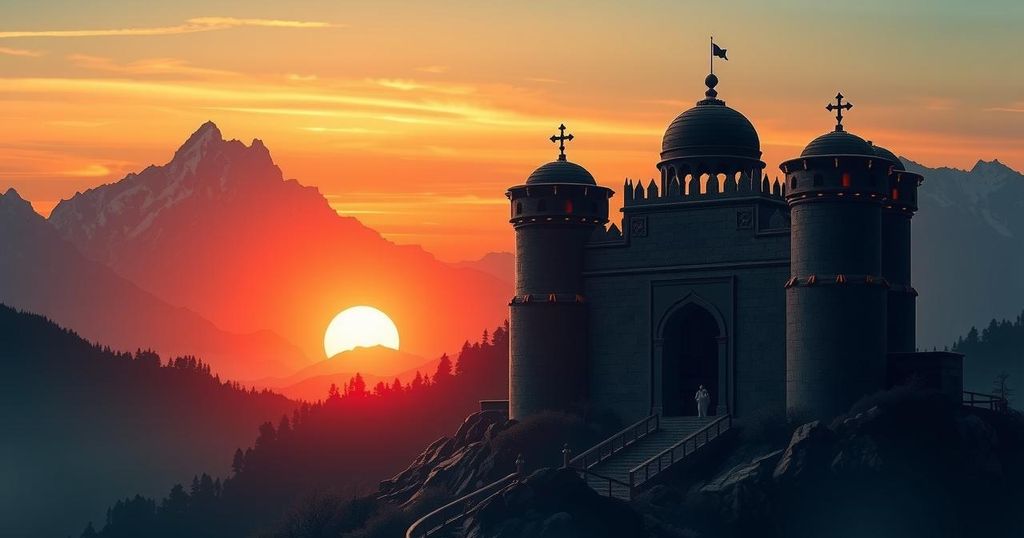Congo’s President Tshisekedi promises a strong response to the M23 rebel advance, particularly after their reported takeover of Goma. He asserts that the country will not be humiliated as regional leaders advocate for negotiations. The conflict escalates with allegations of Rwandan support for the rebels, amid growing violence and foreign involvement in the fighting.
President Felix Tshisekedi of the Democratic Republic of Congo has pledged a resolute response against the M23 rebel coalition, which has recently overtaken significant territory in the eastern part of the country, specifically Goma. In a televised address, Tshisekedi emphasized that his administration would not tolerate humiliation or defeat amid growing regional calls for negotiations with the insurgents.
The M23 has claimed control of Goma and is making advances into South Kivu province. The Congolese government has reported that it is under siege in various locations and has accused Rwanda of supporting the rebels by providing them with both arms and personnel. Rwanda’s government, while acknowledging these allegations, criticized the DRC for its alliances with Hutu groups, historically linked to the 1994 genocide against Tutsis in Rwanda.
During a recent meeting among East African leaders, Tshisekedi was urged to engage directly with the M23 and other armed factions. Rwandan President Paul Kagame stressed the importance of dialogue and understanding the complex history behind the conflict. Meanwhile, violence has escalated, resulting in casualties, including foreign peacekeepers as Congolese forces continue to combat the rebels.
Reports indicate that government troops in Goma have faced disarmament at the hands of the M23. This situation has been compounded by the surrender of foreign mercenaries assisting the Congolese army. Rwandan authorities reported escorting over 280 Romanian mercenaries who had been supporting the DRC military against the ongoing rebellion.
As tensions escalate, analysts suggest two potential outcomes. The M23’s control over Goma could compel the DRC and its allies to seek a peaceful resolution. Conversely, the Congolese government may choose to escalate military efforts, resulting in intensified conflict and potential incursions into Rwanda. Tshisekedi has previously indicated a willingness to confront Rwanda militarily, a sentiment echoed by President Kagame, who has reaffirmed Rwanda’s readiness for conflict if necessary.
The conflict in eastern Congo has deep historical roots, tied to the aftermath of the Rwandan genocide and the complexities of ethnic tensions in the region. The M23 rebel group, emerging from the CNDP, has capitalized on grievances among local populations, exacerbated by allegations of foreign involvement, particularly from Rwanda. The region is also rich in minerals, making territorial control highly contested and significant for national sovereignty and economic interests. This ongoing conflict poses humanitarian crises and destabilizes regional relations.
In conclusion, President Tshisekedi’s determination to resist the M23 rebels reflects his administration’s commitment to national dignity and security. However, the precarious situation in eastern Congo highlights the intricate challenges posed by regional dynamics and external influences. Moving forward, both diplomatic engagement and military strategies will likely shape the trajectory of this conflict, emphasizing the need for a balanced approach to restore stability.
Original Source: www.cnn.com






